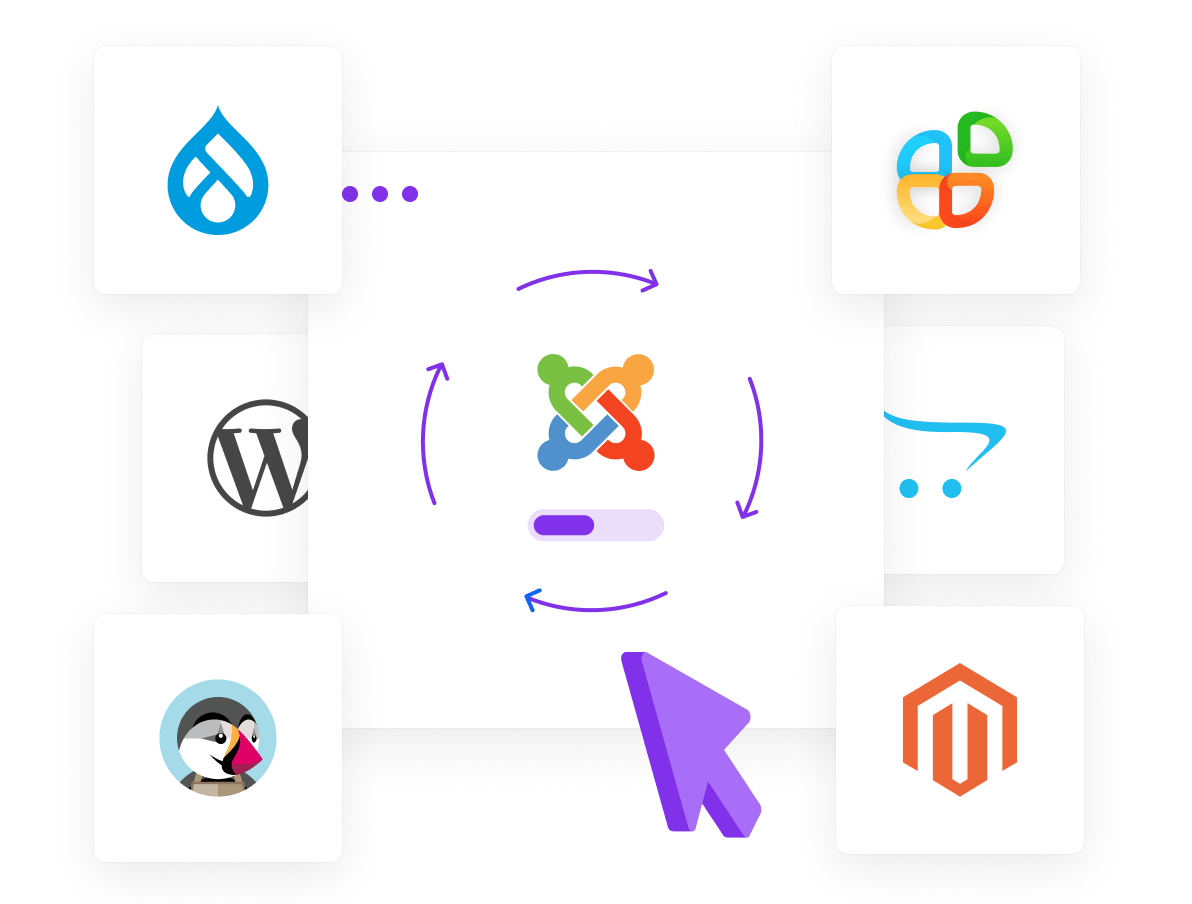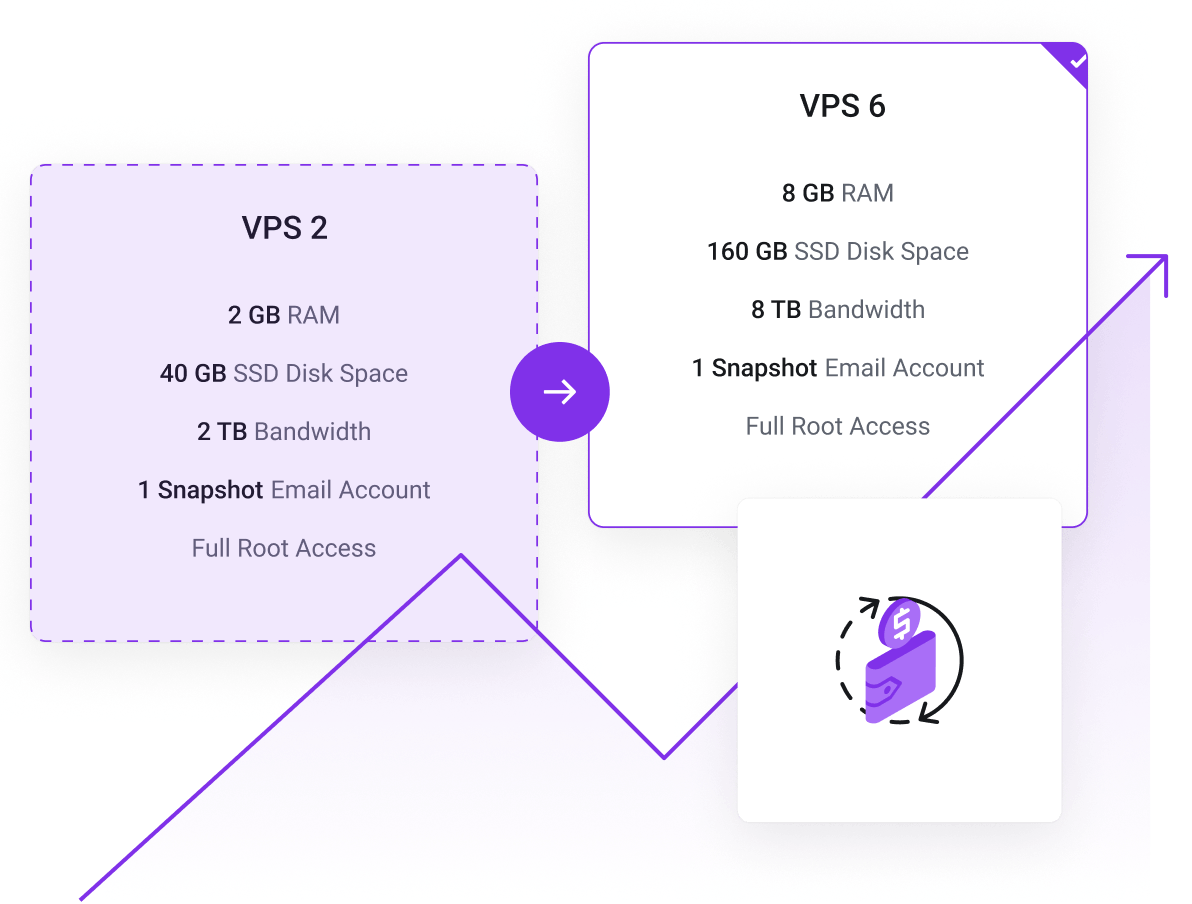LumaDock lets you scale your virtual server when it makes sense. No long term contracts, no hidden fees. Whether you’re testing, building, or growing infrastructure, you can upgrade instantly and on your terms.
Security comes standard with every LumaDock VPS. From always-on DDoS protection to configurable firewall tools and optional private networking, we give developers the security they need.
The main advantage of NVMe is Faster performance: NVMe SSDs can achieve read speeds of up to 6,500 MB/s and write speeds of up to 3,500 MB/s, while SATA SSDs are limited to read speeds of up to 550 MB/s and write speeds of up to 510 MB/s.
This means that NVMe SSDs can significantly improve the performance of your computer, especially for tasks that require a lot of data transfer.
VPS and Cloud VPS are both types of virtualized hosting environments that provide a dedicated portion of a physical server's resources to a single user. However, there are some key differences between the two.
Infrastructure:
VPS: A traditional VPS is typically hosted on a single physical server, which is divided into multiple virtual servers using virtualization technology. This means that the VPS shares the physical server's resources with other VPS instances running on the same server.
Cloud VPS: Cloud VPS, on the other hand, is hosted on a distributed cloud infrastructure, which consists of a network of interconnected physical servers. This means that the cloud VPS is not limited to the resources of a single physical server and can benefit from the scalability and resilience of the cloud infrastructure.
Scalability:
VPS: The scalability of a traditional VPS is limited by the physical resources of the underlying server. If the VPS requires more resources, it may be necessary to migrate to a larger physical server or to upgrade the existing server's hardware.
Cloud VPS: Cloud VPS is highly scalable, as it can easily access additional resources from the cloud infrastructure. This means that the cloud VPS can scale up or down as needed to meet the changing demands of the application or website.
Performance:
VPS: The performance of a traditional VPS can be affected by the performance of the underlying server and the number of VPS instances running on the same server. If the server is overloaded or if there are too many VPS instances running, the performance of the individual VPS instances may suffer.
Cloud VPS: Cloud VPS typically offers better performance than traditional VPS, as it benefits from the distributed nature of the cloud infrastructure. The resources of the cloud VPS are not shared with other VPS instances running on the same physical server, and the cloud infrastructure can provide additional resources as needed to ensure optimal performance.
Rest assured, every Cloud Server you choose comes with built-in DDoS Protection at LifeinCloud. It's automatically activated for everyone, so you don't need to worry about any configuration or additional fees.
We're dedicated to continuous improvement, constantly refining our protection system to counter a wide range of attacks. Like any DDoS protection, we can't promise a 100% impenetrable shield against every imaginable threat.
However, with LifeinCloud's DDoS Protection, you gain a powerful ally in safeguarding your online presence..
In our offer the virtual machines are optimized for different use-cases:
- NVMe Optimized: these virtual machines offer ample NVMe SSD storage, complementing standard CPU and RAM configurations. They are well-suited for demanding applications such as large nonrelational databases, including Cassandra and MongoDB, and high-frequency online transaction processing (OLTP).
- Memory Optimized: Tailored for memory-intensive workloads, these VMs prioritize RAM allocation, offering a higher proportion of memory compared to CPU and NVMe SSD. They are ideal for applications that heavily rely on data handling, such as open-source databases like MySQL, in-memory databases and caches like Memcached, and real-time analytics systems
- Intel or AMD High Performance: Designed for compute-intensive tasks, these VMs emphasize CPU power, offering a higher allocation of CPU cores compared to RAM and NVMe SSD. They are perfectly suited for applications that demand significant processing power, such as video encoding, batch processing, continuous integration/continuous delivery (CI/CD), high-performance computing (HPC), ad serving platforms, and analytics processing.
Yes, of course. In the Client Area you can choose to upgrade or downgrade your virtual machines.
If you're not satisfied with our products, you can request a full refund within 30 days of your first order using our ticketing system.
You'll receive a full refund for our products without any questions asked within 5 business days.
This refund policy does not apply to third-party products and licenses such as cPanel, Plesk, and Microsoft software.
Yes! All Cloud VPS and Cloud VDS plans include Automatic Backup with 3 restore points (3 day retention). You can even schedule the backup days as you like.
When you first creat the VM, you need to go in Control Panel -> Backups and setup when you want the automatic backup to be made: daily, weekly, monthly.
The backup is incremental, the latest backup is written over the oldest. Also Manual Backup is included for every Cloud VPS/VDS plan, so you can consider this the Snapshot equivalent.
Cloud VPS (Virtual Private Server) is a popular choice for businesses of all sizes because it offers a balance of performance, scalability, and affordability. Here are some of the key benefits of choosing cloud VPS:
1. Scalability: Cloud VPS is highly scalable, which means that you can easily add or remove resources (CPU, RAM, storage) as your needs change. This is a major advantage over traditional VPS hosting, where you are limited to the resources that you have purchased upfront.
2. Performance: Cloud VPS is typically more performant than shared hosting, as you have dedicated resources that are not shared with other users. This means that your website or application will experience fewer slowdowns and outages.
3. Cost-effectiveness: Cloud VPS is a cost-effective solution for businesses that need more resources than shared hosting but don't need the full power of a dedicated server. With cloud VPS, you only pay for the resources that you use, so you can save money by scaling your resources up or down as needed.
4. Security: Cloud VPS is a more secure hosting option than shared hosting, as your data is stored in a secure cloud environment. Cloud providers also have a variety of security measures in place to protect your data from cyberattacks.
5. Control: Cloud VPS gives you more control over your server environment than shared hosting. You can install your own operating system and software, and you can configure your server to meet your specific needs.
6. Reliability: Cloud VPS is a highly reliable hosting option, as your data is replicated across multiple data centers. This means that your website or application will continue to be up and running even if there is an outage at one of the data centers.






